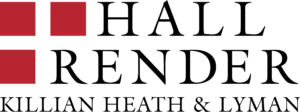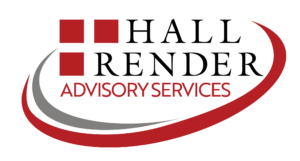CMS recently issued an update of a memorandum entitled “COVID-19 Emergency Declaration Blanket Waivers for Health Care Providers” (“Blanket Waiver Memo”) that announced additional blanket waivers for providers, including hospitals and skilled nursing facilities (“SNFs”) as a result of the COVID-19 public health emergency (“PHE”). The waivers have a retroactive effective date of March 1, 2020, and will remain in effect for the duration of this PHE.
The Blanket Waiver Memo includes several service enhancements and waivers for hospitals and SNFs. CMS issued the hospital and SNF waivers to address potential skilled nursing bed shortages to protect the health and safety of patients during the PHE.
Background – Section 482.58 – Swing Beds
Under 42 CFR Section 482.58, a hospital that has a Medicare provider agreement must meet several requirements in order to be granted an approval from CMS to provide post-hospital extended care services: (1) the facility has fewer than 100 hospital beds, excluding beds for newborns and beds in intensive care type inpatient units; (2) the hospital is located in a rural area; (3) the hospital does not have in effect a 24-hour nursing waiver; and (4) hospital has not had a swing-bed approval terminated within the 2 years prior to the application.
When granted the hospital’s skilled nursing facility services must comply with many of the skilled nursing facility requirements contained in 42 CFR 483, including (1) resident rights; (2) admission, transfer and discharge rights; (3) freedom from abuse, neglect and exploitation; (4) social services; (5) discharge summary requirements; (6) specialized rehab services; and (7) dental services.
Regulatory Blanket Waiver
CMS has waived the requirement in 42 CFR Section 482.58 (a)(1)-(4) to allow hospitals to establish SNF swing beds payable under the SNF prospective payment system (“PPS”) to provide additional options for hospitals with patients who no longer require acute care but are unable to find placement in a SNF.
In order to qualify for this waiver, hospitals must:
- Not use SNF swing beds for acute level care;
- Comply with all other hospital conditions of participation and those SNF provisions in 42 CFR Section 482.58(b) to the extent not waived; and
- Be consistent with the state’s emergency preparedness or pandemic plan.
Hospitals must call the CMS Medicare Administrative Contractor (“MAC”) enrollment hotline to add swing bed services and attest to CMS that:
- They have made a good faith effort to exhaust all other options;
- There are no skilled nursing facilities within the hospital’s catchment area that under normal circumstances would have accepted SNF transfers, but are currently not willing to accept or able to take patients because of the PHE;
- The hospital meets all waiver eligibility requirements; and
- They have a plan to discharge patients as soon as practicable, when a SNF bed becomes available or when the PHE ends, whichever is earlier.
A hospital shall not bill for SNF PPS payment using swing beds when patients require acute level care or continued acute care at any time while this waiver is in effect. The waiver is permissible for swing bed admissions during the PHE with an understanding that the hospital must have a plan to discharge swing bed patients as soon as practicable, when a SNF bed becomes available or when the PHE ends, whichever is earlier.
Operational Aspects
A CMS memo entitled “COVID-19 Blanket Swing Bed Waiver for Addressing Barriers to Nursing Home Placement for Hospitalized Individuals” (“MLN Memo”) covers several operational aspects of creating swing beds.
Discharge from the hospital is important to implementing swing beds. The patient’s medical record must demonstrate the plan to discharge the SNF patients according to a discharge plan. The hospital must also have in effect a discharge planning process that focuses on the patient goals and treatment preferences and includes the patient and his or her support person(s) in the discharge planning for post-discharge care. The discharge planning process and the discharge plan must be consistent with the patient’s goals for care and his or her treatment.
Some additional considerations from an operational perspective include:
- The hospital needs to have a system in place for determining the Patient-Driven Payment Model (“PDPM”) components;
- Staff should be educated on the proper completion of the Minimum Data Set;
- Documentation of all the above components of conditions of participation should be readily available in the case of external governmental audits;
- Medical record documentation should be reviewed to ensure it supports the need for the swing bed and the efforts for SNF placement; and
- Once the SNF swing beds are operating, a claims review should be performed to determine if components are being transmitted appropriately.
The above list is not all-inclusive of the intricacies of proper documentation and billing of swing bed SNF services, but instead is a starting point for consideration of how best to protect your organization from scrutiny while operationalizing this process.
Billing and Coding Concerns – Type of Bill Codes 18X or 21X and PDPM Issues
Although various MAC and CMS have provided guidance regarding how to appropriately code and bill for SNF swing bed services, some of the guidance can be unclear. For example, hospitals are required to indicate the type of facility and the type of care where the SNF swing bed services were performed by utilizing Type of Bill codes 18X or 21X.
Additionally, regardless of which Type of Bill codes hospitals use, hospitals still must utilize the PDPM. Operationally, this can be a challenge for hospital billing personnel who haven’t previously billed for SNF services.
Compliance Program Concerns
As regulatory compliance specialists, the following phrases, which come from 42 CFR 482.58 and the MLN Memo, spell potential disaster for hospitals and their compliance programs:
- “A hospital that has a Medicare provider agreement must meet the following requirements in order to be granted an approval from CMS to provide post-hospital extended care services” See 42 CFR Section 482.58.
- “In order to qualify for this waiver, hospitals must: (1) not use SNF swing beds for acute level care; (2) comply with all other hospital conditions of participation and those SNF provisions set out at 42 CFR 482.58(b) to the extent not waived; and (3) be consistent with the state’s emergency preparedness or pandemic plan.” See MLN Memo.
- “The hospital must attest to CMS that: (1) they have made a good faith effort to exhaust all other options; (2) there are no SNFs within the hospital’s catchment area that under normal circumstances would have accepted SNF transfers, but are currently not willing to accept or able to take patients because of the COVID-19 PHE; (3) the hospital meets all waiver eligibility requirements; and (4) they have a plan to discharge patients as soon as practicable, when a SNF bed becomes available or when the PHE ends, whichever is earlier.” See MLN Memo.
- “The hospital shall not bill for SNF PPS payment using swing beds when patients require acute level care or continued acute care at any time while this waiver is in effect.” See MLN Memo.
All of the above statements and all of the corresponding conditions that must be met require a complex interaction between numerous hospital operational areas such as Billing, HIM, Quality, Revenue Cycle, IT, SNF, etc., and the Compliance Department to ensure compliance. These new requirements pose False Claims risks, Conditions of Participation risk and other risks to hospitals that avail themselves to these waivers.
Each of these risks needs to be assessed, ranked and rated. Multi-disciplinary committees or subcommittees should be formed to address these complex issues. Policies and procedures need to be drafted. Training needs to be conducted and auditing and monitoring plans need to be created and implemented.
Depending on an organization’s increased utilization of SNF swing bed services, hospitals may end up on data analytics radar screens; therefore, hospitals may want to perform or contract with competent third party coding compliance professionals, such as Hall Render Advisory Services, to conduct pre-bill coding compliance audits to ensure that the hospital’s documentation supports the services.
Although the issue of whether or not to utilize SNF swing beds may appear simple on the surface, there are numerous regulatory considerations that must be addressed prior to utilizing this waiver.
If you have questions or would like additional information about this topic, please contact:

- Sean Fahey at (317) 977-1472 or sfahey@wp.hallrender.com
- Todd Selby at (317) 977-1440 or tselby@wp.hallrender.com

- Kenneth Zeko at (214) 458-3457 or kzeko@HallRenderAS.com
- Delena Howard at (904) 463-7306 or dhoward@HallRenderAS.com
Hall Render’s attorneys and professionals continue to maintain the most up-to-date information and resources at our COVID-19 Resource page, through our 24/7 COVID‑19 Hotline at (317) 429-3900 or by contacting your regular Hall Render attorney.
Hall Render blog posts and articles are intended for informational purposes only. For ethical reasons, Hall Render attorneys cannot—outside of an attorney-client relationship—answer specific questions that would be legal advice.


